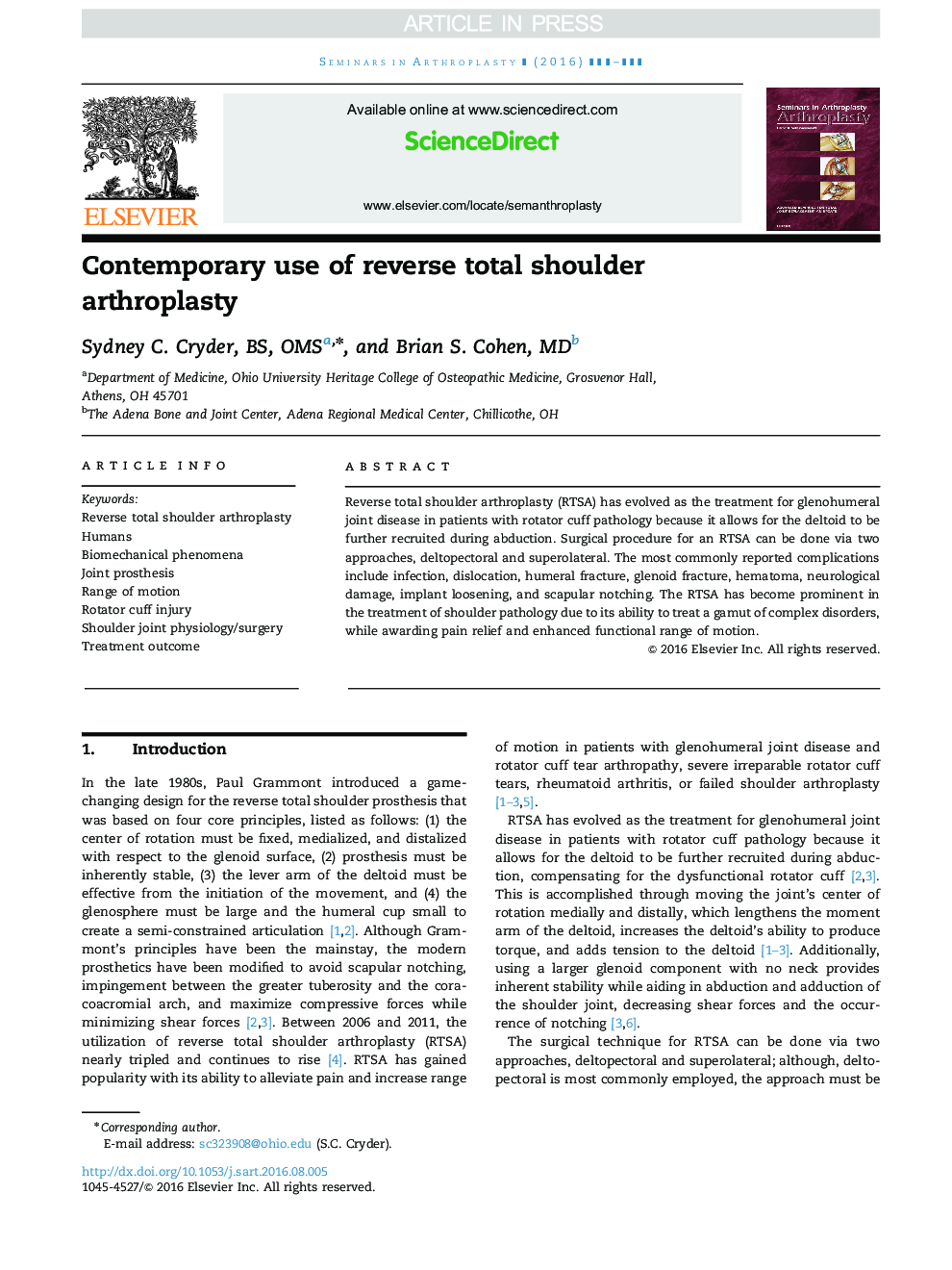| Article ID | Journal | Published Year | Pages | File Type |
|---|---|---|---|---|
| 5712444 | Seminars in Arthroplasty | 2016 | 6 Pages |
Abstract
Reverse total shoulder arthroplasty (RTSA) has evolved as the treatment for glenohumeral joint disease in patients with rotator cuff pathology because it allows for the deltoid to be further recruited during abduction. Surgical procedure for an RTSA can be done via two approaches, deltopectoral and superolateral. The most commonly reported complications include infection, dislocation, humeral fracture, glenoid fracture, hematoma, neurological damage, implant loosening, and scapular notching. The RTSA has become prominent in the treatment of shoulder pathology due to its ability to treat a gamut of complex disorders, while awarding pain relief and enhanced functional range of motion.
Keywords
Related Topics
Health Sciences
Medicine and Dentistry
Orthopedics, Sports Medicine and Rehabilitation
Authors
Sydney C. BS, OMS, Brian S. MD,
